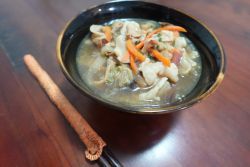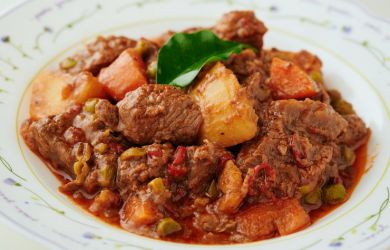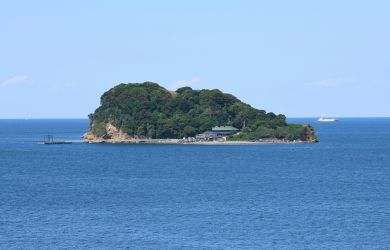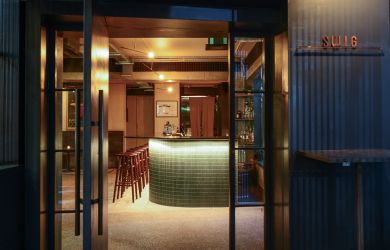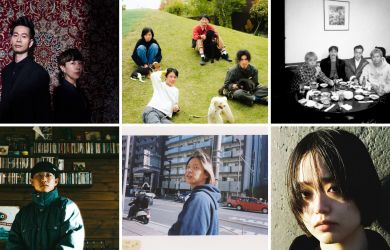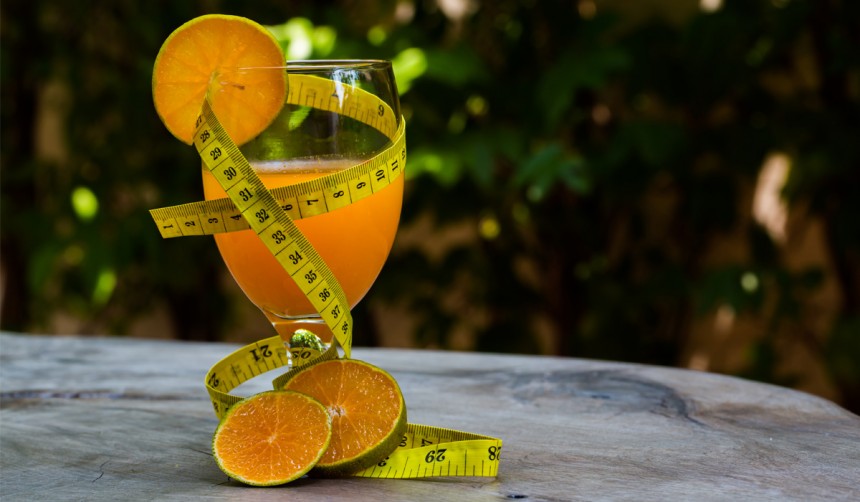
March 28, 2016
Juicing in Japan
The cold-press craze that’s taking the nation by storm
Japan is no stranger to health food trends. Its latest hype, that surrounding the cold-pressed juice, is beginning to make waves. Cold-press juicing has taken off in the U.S. over the last five years, and is hailed as the biggest health craze that may actually work. Juice stores have set up shop everywhere from Los Angeles and New York, to sleepy towns like Edwardsville, Illinois. Even chains like Starbucks have created a line of cold-pressed juices to keep up with the times.
While Japan has been slow to get on the cold-pressed juice wagon, the country does have a long history of juicing for health benefits. Aojiru (kale-based vegetable juice) was concocted in the 1940s by Dr. Niro Endo, and was claimed to do everything from improving digestion to curing pneumonia. Aojiru can be made at home with fresh leafy greens, or bought premade in stores, either as a juice or concentrated powder. Health benefits aside, aojiru is infamous for its bitter taste—drinking a glass has become a challenge on Japanese game shows—leaving it unpalatable to those unwilling to go to extreme measure for their health. But Japanese cold-pressed juicing has eliminated the bitterness of aojiru without sacrificing its health benefits.
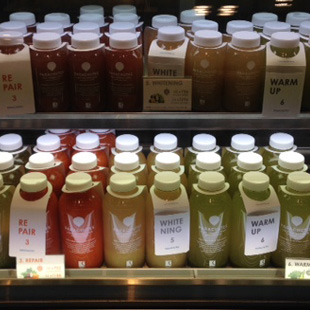
Unlike regular kinds of juicing, the cold-pressed variety sets itself apart by using a hydraulic press to extract nutrients in the most efficient way possible. The fruits and vegetables are first shredded into even parts by a giant blade, and then collected in a porous bag that sits underneath the blade. The bag is then squeezed by the hydraulic press to separate the water from the pulp, thus collecting the juice. Pressed juice fanatics claim this way is healthier than regular juices, as it’s never pasteurized—a process that kills enzymes—and because the evenly-cut pulp keeps the full nutritional profile intact for a full 72 hours, unlike most juicers, which only last approximately 20 minutes.
Parachutes is one of the stores on the forefront of cold-pressed juicing Japan. A chain store with locations all over Kansai, it’s no surprise that their Shinjuku location is in the bustling Marui shopping center near Shinjuku-sanchome Station. With thorough English and Japanese menus, the store is popular with locals and tourists alike. While their focus is cold-pressed juice, they also sell smoothies made with fresh fruit and chia seeds, and sandwiches filled with vegetables, sprouts, and a meat of your choice.
With eight main juices and seasonal specials, it’s easy to find a juice that suits your health needs—or if you have a sweet tooth and want to avoid the bitter green vegetable taste. Parachutes also blends current Japanese health trends inside of their juices. Every smoothie comes with a generous swirl of chia seeds and other healthy add-ons like bee pollen—two health trends that have become popular in Japan for their nutritional benefits.
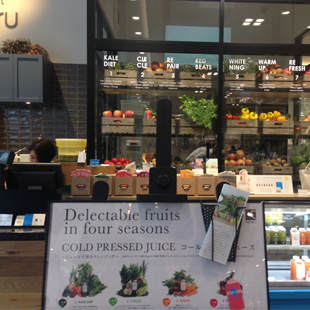
Parachutes also provides a juice cleanse package for the more daring. Have no fear about Japanese ability either! The juices can be ordered by their name or by number, and come in either “S” (¥756) or “L” (¥1,296) size, making it easy for non-native speakers to have a taste.
If you’re new to cold-pressed juice, starting off with their number four juice, Red Beats, sweetened not only with fruits but with beets and carrots; or number two, Circle, where the fruits balance out the spinach—the best way to start immersing yourself. For those worried about sugar content or seeking the biggest bang for their buck, go for number one, Kale Diet, with its mix of leafy greens, or their Green Smoothie, made in front of you with greens and fruit.
Parachutes. 1F Shinjuku Marui Honkan, 3-30-13 Shinjuku, Shinjuku-ku. Tel: 03-6274-8415. Nearest station: Shinjuku. www.parachutes.jp
